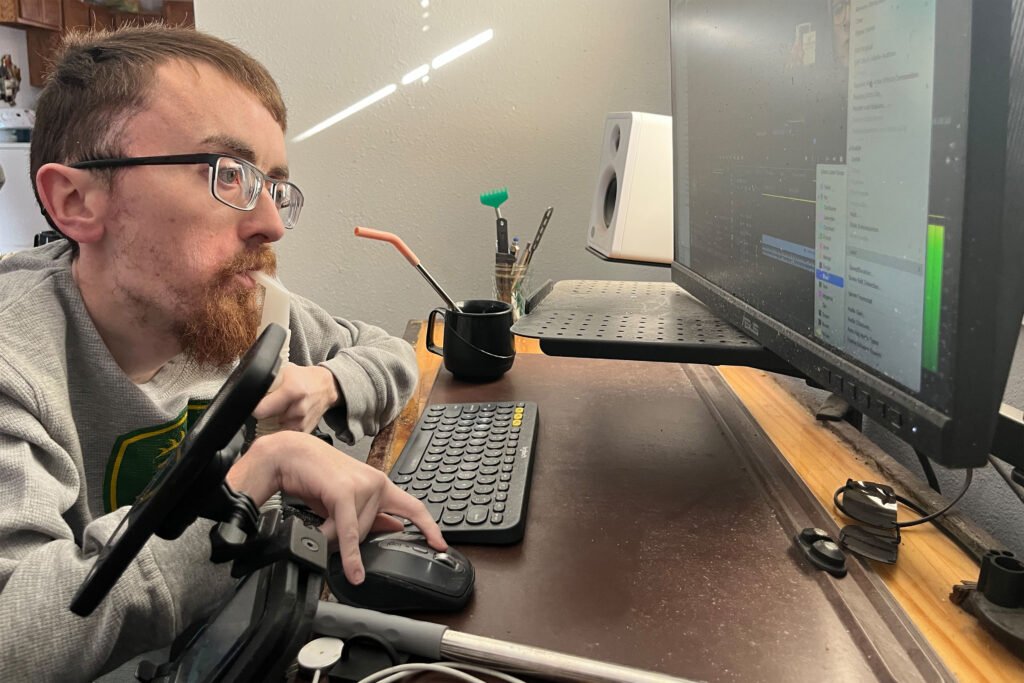Promoting Employment Rights for People with Disabilities in Iowa
In Pleasantville, Iowa, Zach Mecham faces a dilemma. As a Medicaid recipient living with muscular dystrophy, he relies on the public insurance program to access essential services that allow him to live independently. However, conflicting Medicaid rules make it challenging for individuals with disabilities like him to secure full-time employment.
At 31 years old, Mecham uses a wheelchair and a portable ventilator for mobility and breathing support. He depends on a paid assistant at night and a home health aide in the morning to assist him with daily tasks and run his online marketing business. Without Medicaid coverage for these services, Mecham would be forced to close his business and move into a nursing home.
While private health insurance plans do not typically cover support services like those provided by Medicaid, Iowa offers a Medicaid buy-in program for individuals with disabilities. However, like many states, Iowa imposes income and asset caps on participants, limiting their ability to work full time or advance in their careers.
Mecham has been advocating for legislative changes in Iowa to remove these financial restrictions and replace them with a premium-based system. The proposed “Work Without Worry” bill would eliminate income and asset caps for Medicaid participants with disabilities, requiring them to pay 6% of their income as premiums. These fees would be waived if individuals have employer-based health insurance to cover standard medical care.
Disability rights advocates argue that income and asset caps create a poverty trap, preventing individuals from working to their full potential. By removing these barriers, individuals with disabilities could pursue higher-paying jobs and contribute to the workforce, addressing ongoing labor shortages in Iowa.
State Representative Josh Turek, a wheelchair user and Paralympic gold medalist, supports the bill, citing the importance of empowering people with disabilities to achieve economic stability. The proposed legislation aligns with the state’s efforts to promote workforce participation among Medicaid recipients, a policy championed by Governor Kim Reynolds.
While Reynolds has prioritized Medicaid work requirements for nondisabled recipients, she has not indicated her stance on eliminating income and asset caps for individuals with disabilities. Disability rights activists argue that these restrictions discourage marriage among couples with disabilities and hinder financial independence.
Advocates like Maria Town emphasize the need to expand Medicaid buy-in programs to accommodate individuals with disabilities who want to work. By allowing these individuals to earn more income without losing Medicaid coverage, states can benefit from increased tax contributions and reduced reliance on social services.
Congress has considered similar proposals to support people with disabilities in the workforce, but progress has been limited. States like Massachusetts have already eliminated income caps for Medicaid buy-in programs, demonstrating the feasibility and benefits of such policy changes.
In Iowa, bipartisan support for the “Work Without Worry” bill signals a positive shift towards inclusive policies for individuals with disabilities. Mecham and other advocates hope that these changes will enable them to expand their businesses and pursue their career goals without the fear of losing vital Medicaid coverage.
Related Topics:
- Contact Us
- Submit a Story Tip


